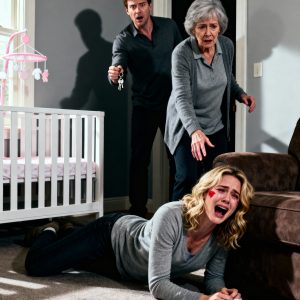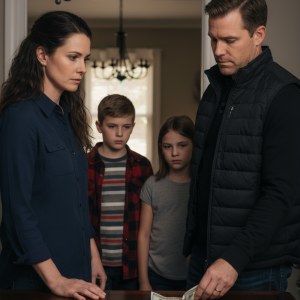Paul greeted Christmas morning with a thumping skull and a foggy memory. On his nightstand sat an aspirin, a full glass of water, and a single crimson rose—his wife’s elegant way of saying, You survived, but tread lightly. The bedroom was immaculate; his rumpled clothes, now neatly folded, waited on a chair. A handwritten note promised a hot breakfast, a festive dinner, and—between the lines—the faintest whiff of don’t push your luck.
Still woozy, Paul shuffled into the hallway and found his eight‑year‑old son tinkering with new toys. “What on earth happened last night?” he whispered. Without looking up, the boy replied, “You came home singing carols, slammed into the door, and reduced the coffee table to firewood.”
Paul’s stomach dropped. The living room—spotless, tree twinkling, no sign of splinters—told a story his head couldn’t follow. Why wasn’t his wife furious? Why did everything look as though a professional cleaning crew had swept through at dawn?
His son finally met his eyes, a mischievous grin spreading across his face. “She tried to help you up,” he said. “And you yelled, ‘Back off, lady! I’m a married man!’” The words had come out slurred, but crystal‑clear in meaning—the drunken knight’s declaration of loyalty. Whatever furniture Paul had wrecked, he’d fortified his marriage in a single, muddled sentence.
What could have been a yuletide disaster became the family’s favorite holiday legend. They’d retell it every December—how shattered wood and slurred vows revealed a heart that knew its true north. Because sometimes, even through a haze of eggnog and regret, love blurts out the truth—and that, Paul realized, is the greatest Christmas gift of all.





